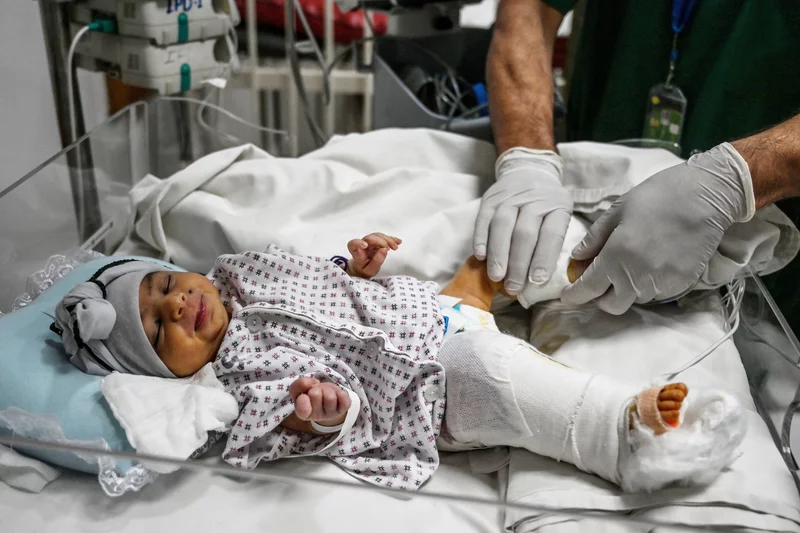When Amina was only 45 minutes old, before she even had a name, several gunmen stormed the maternity ward operated by Médecins Sans Frontières (MSF) in Kabul, on May 12, 2020, where she was born. Somehow Amina survived the indiscriminate shooting that killed her mother and 23 others — women, nurses and newborns.
WORLD
‘Unforgivable’: Attack On Afghan Hospital Kills At Least 16, Including Newborns
GOATS AND SODA
OPINION: We Shouldn’t Have To Ask That Babies And Mothers Not Be Killed. Yet We Must
No one knows for sure how Amina survived. Afghan forces discovered her mother’s body crouched on the hospital floor clutching her daughter’s baby blanket. These first responders, who rescued the baby, speculated that she had likely been shielded by her mother.
The child suffered severe injuries to her right leg and was moved to another hospital, where she received the first in a series of surgeries over the next two years along with physical therapy. The goal was to give her full use of the leg, which was kept in a protective brace.
“Amina’s case was complicated,” said B.N., a surgeon who is one of the doctors who has treated the child. (He asked to be identified by his initials lest the Taliban detain or punish him for his work with international organizations. The Taliban have known to be suspicious of Afghans who’ve work with foreigners, labelling them as traitors and at times even harassing and detaining them.)
The doctor explained that Amina sustained three bullet wounds in the leg, causing critical vascular damage and impairing nerves. With such injuries, he said, amputation is a common outcome. He managed to save her leg with the initial surgery and three follow-up procedures, including a nerve graft to improve blood flow.
Gradually, she learned to walk using both legs. But because she is a growing child, B.N. said she needs regular monitoring.
The child’s family goes into hiding — and medical care is scarce
Amina’s medical care was deeply compromised in the chaos that followed the Taliban takeover in August 2021. Her father, Rafiullah Sharifi, was a police officer in the Afghan forces. Worried that he might be detained by the Taliban and that family members, particularly Amina, might be at risk of harm, he went into hiding and moved the family frequently to avoid being caught.
“Because of my work in the previous government, I was in hiding from the Taliban and couldn’t take Amina for her therapies,” said Sharifi. “Her doctor had also left the country, and we had no financial resources left. Our family was barely making ends meet.”
Meanwhile, the country’s health system was on the brink of collapse after the Taliban takeover. International sanctions led to an unprecedented humanitarian crisis for a government largely dependent on foreign aid. Thousands of health facilities funded by the World Bank ceased operation.
The crisis in Afghanistan – along with Taliban restrictions on girls’ education — has prompted many of the country’s doctors to leave the country, B.N. said.
“For a lot of the medical community, they have their own children, especially daughters, and are worried about their future,” he said. He, too, is no longer based in Afghanistan but returns regularly to see his patients and perform surgeries.
Read full story on NPR
